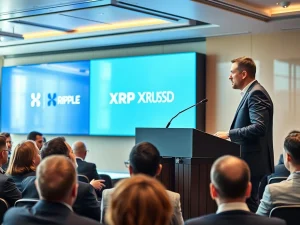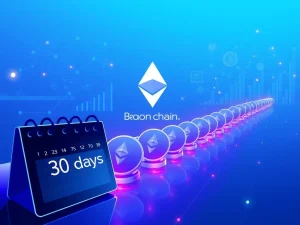Unleashing Japan’s Bitcoin Revolution: Metaplanet’s Strategic 17,132 BTC Holdings Drive Institutional Adoption

In a groundbreaking move that reverberates across the global financial landscape, Japanese firm Metaplanet has once again demonstrated its unwavering commitment to digital assets with a substantial acquisition of 780 Bitcoin. This latest purchase, valued at an impressive $92.5 million, dramatically elevates Metaplanet’s total Bitcoin holdings to an astounding 17,132 BTC. This isn’t just another corporate investment; it’s a powerful statement in the ongoing narrative of institutional adoption, particularly within Japan’s evolving financial ecosystem. For anyone tracking the pulse of the crypto market, this development signals a pivotal shift, reinforcing Bitcoin’s role as a premier reserve asset.
Bitcoin News Today: Metaplanet’s Monumental Acquisition Unpacked
The recent Bitcoin news today highlights Metaplanet’s calculated expansion of its digital asset portfolio. Executed on July 28, 2025, at an average price of $118,622 per Bitcoin, this acquisition is a testament to the company’s disciplined approach to capitalizing on Bitcoin’s inherent volatility while strategically positioning it as a core reserve asset. With this latest purchase, Metaplanet’s total investment in Bitcoin now surpasses $1.73 billion, acquired at an average cost of $101,030 per coin. These figures paint a clear picture: Metaplanet isn’t dabbling; it’s committing.
This move aligns seamlessly with broader institutional trends emerging in Japan. As regulatory clarity continues to improve and macroeconomic uncertainties persist globally, corporations are increasingly looking towards Bitcoin as a robust hedge against inflation and potential currency devaluation. Metaplanet’s consistent, incremental acquisitions, which began with initial holdings of 1,000–5,000 BTC in early 2024 and expanded to 117.132 BTC by June 2024 (as per some reports), showcase a methodical integration of Bitcoin into their corporate treasury management strategies. It’s a bold declaration that digital assets are no longer speculative fringe investments but essential components of a diversified, future-proof financial strategy.
Why Are Metaplanet Holdings Skyrocketing? A Deep Dive into Strategy
The rapid growth in Metaplanet holdings isn’t accidental; it’s the outcome of a meticulously crafted long-term strategy. Unlike short-term traders, Metaplanet views Bitcoin primarily as a store of value and a powerful diversification tool. Their approach mirrors that of pioneering global institutional investors who treat Bitcoin as a strategic complement to traditional reserves, aiming to mitigate risks associated with fiat currency depreciation and geopolitical instability. This mindset shift is crucial.
Consider the core tenets of their strategy:
- Long-Term Value Retention: Metaplanet prioritizes Bitcoin’s potential for sustained growth and its ability to preserve capital over extended periods, rather than seeking quick profits from market fluctuations.
- Inflation Hedge: In an era of increasing global inflation, Bitcoin offers a decentralized, finite supply alternative to traditional currencies, which are susceptible to inflationary pressures.
- Diversification: Adding Bitcoin to a corporate treasury provides a non-correlated asset that can reduce overall portfolio risk and enhance returns, particularly during periods of economic uncertainty.
- Strategic Complement: Bitcoin is not replacing traditional assets but augmenting them, providing a modern layer of financial resilience.
This disciplined accumulation, especially at an average acquisition cost significantly lower than the current market price, underscores a strong belief in Bitcoin’s future trajectory and its indispensable role in modern corporate finance. It’s a testament to a company that looks beyond quarterly reports, focusing instead on building a resilient balance sheet for decades to come.
Japan’s Institutional Adoption: Is a New Era for Crypto Dawning?
Metaplanet’s aggressive Bitcoin strategy is a significant indicator of burgeoning Japan’s institutional adoption of digital assets. While Japan’s regulatory framework has historically been cautious, it has steadily evolved to create conditions conducive to gradual institutional participation. The country was an early adopter of cryptocurrency regulation, recognizing Bitcoin as a legal property in 2017, which laid a foundational stone for corporate interest.
Key factors contributing to this accelerating trend include:
| Factor | Impact on Adoption |
|---|---|
| Regulatory Clarity | Clearer guidelines reduce legal and compliance risks for corporations. |
| Macroeconomic Uncertainty | Inflationary pressures and currency devaluation concerns drive interest in alternative assets. |
| Improved Infrastructure | Robust custody solutions, exchange-traded products, and secure platforms lower barriers to entry. |
| Peer Influence | Successful ventures by firms like Metaplanet encourage other Japanese corporations to explore similar strategies. |
Metaplanet’s actions send a powerful signal to its peers within Japan’s corporate landscape. By publicly committing to Bitcoin as a treasury asset, they are potentially paving the way for other major Japanese companies to follow suit. This collective shift could solidify Japan’s position as a global leader in institutional-grade digital asset investment, provided regulatory frameworks continue to adapt and support this growth.
Impact on the Crypto Market: Stability Through Institutional Demand
From a broader crypto market perspective, Metaplanet’s continued accumulation of Bitcoin has several profound implications. Each significant purchase reduces the circulating supply of Bitcoin available on exchanges, which, in turn, can contribute to price stability and potentially encourage upward price momentum over the long term. This institutional demand is increasingly viewed as a stabilizing force in the often-volatile cryptocurrency markets, offering a stark contrast to the rapid price swings historically driven by retail speculation.
However, the journey for Japanese firms integrating digital assets is not without its challenges. Key hurdles include:
- Accounting Complexities: Navigating the accounting treatment for Bitcoin holdings, which can vary by jurisdiction and often lacks clear, universally accepted standards.
- Regulatory Scrutiny: While Japan has progressive regulations, firms must remain vigilant regarding evolving compliance requirements and potential future policy changes.
- Public Perception: Overcoming lingering skepticism or misunderstanding about cryptocurrencies among some traditional investors and the general public.
Despite these challenges, the trend is clear: institutional money is flowing into Bitcoin, bringing with it a level of maturity and stability that was once unimaginable. As more companies adopt Bitcoin for their treasuries, the market’s overall resilience is expected to strengthen, attracting even more sophisticated investors.
Bitcoin as a Strategic Reserve Asset: Redefining Corporate Treasury
Metaplanet’s decision to treat Bitcoin as a strategic reserve asset rather than a mere tradable instrument marks a significant maturation in institutional thinking. This approach underscores Bitcoin’s growing acceptance as a legitimate store of value, akin to gold, but with distinct advantages in terms of divisibility, portability, and censorship resistance. By prioritizing long-term value retention and financial resilience, Metaplanet positions itself not just as an early adopter, but as a thought leader in Japan’s crypto adoption curve.
This shift could have a cascading effect:
- Influencing Peers: Metaplanet’s success might encourage other Japanese corporations, including those in non-crypto sectors, to re-evaluate their treasury strategies and consider Bitcoin.
- Accelerating Infrastructure Development: Increased institutional demand will spur further innovation and investment in secure custody solutions, compliant trading platforms, and other essential digital asset infrastructure.
- Global Hub Status: If more Japanese firms follow suit, Japan could solidify its reputation as a global hub for institutional-grade digital asset investment, attracting international capital and talent.
The firm’s actions are a powerful endorsement of the underlying technology and economic principles of Bitcoin. It’s a clear signal that the world’s leading cryptocurrency is moving from the fringes of speculative investment into the mainstream of corporate finance, fundamentally altering how companies manage their assets and mitigate risk in an increasingly uncertain global economy.
Benefits of Institutional Bitcoin Adoption
- Inflation Hedging: Protects corporate purchasing power against fiat currency devaluation.
- Diversification: Adds a non-correlated asset to the balance sheet, potentially reducing overall portfolio risk.
- Long-Term Value Appreciation: Positions the company to benefit from Bitcoin’s projected long-term growth.
- Competitive Edge: Early adoption can signal forward-thinking leadership and attract tech-savvy talent and investors.
- Transparency: Bitcoin’s transparent blockchain ledger offers a new level of auditability.
Challenges for Japanese Firms Navigating Crypto Treasury
- Regulatory Nuances: Staying compliant with Japan’s evolving financial regulations for digital assets.
- Accounting Standards: Lack of uniform global accounting standards for cryptocurrencies can create complexities.
- Security Risks: Ensuring robust cybersecurity measures for digital asset custody.
- Volatility Management: While long-term focused, managing short-term price fluctuations remains a consideration.
- Internal Education: Educating board members and stakeholders on the benefits and risks of Bitcoin.
Actionable Insights for Businesses and Investors
For businesses contemplating a similar move, Metaplanet’s strategy offers valuable lessons in measured, strategic adoption. For investors, it underscores the growing mainstream acceptance of Bitcoin, signaling a maturation of the asset class. Pay attention to regulatory developments in key financial hubs, as they often precede significant institutional inflows. The shift towards Bitcoin as a corporate reserve asset is not just a trend; it’s a fundamental re-evaluation of financial resilience in the digital age.
Metaplanet’s latest Bitcoin acquisition is more than just a transaction; it’s a landmark event signifying a monumental shift in how corporate treasuries are managed in Japan and potentially across the globe. By embracing Bitcoin as a strategic reserve asset, Metaplanet is not only fortifying its own balance sheet against economic uncertainties but also catalyzing broader institutional adoption in a key financial market. This bold move underscores Bitcoin’s undeniable ascent as a legitimate and essential component of modern financial strategy, paving the way for a new era of digital asset integration in traditional finance. The future of corporate treasury is increasingly looking decentralized, and Metaplanet is at the forefront of this exciting transformation.
Frequently Asked Questions (FAQs)
Q1: What is Metaplanet and what is its primary business?
A1: Metaplanet is a Japanese company that has gained significant attention for its aggressive strategy of accumulating Bitcoin as a core treasury asset. While the provided text focuses on its Bitcoin strategy, Metaplanet is primarily a financial technology (FinTech) company that aims to leverage digital assets and blockchain technology in its operations.
Q2: How much Bitcoin does Metaplanet now hold after its latest acquisition?
A2: After its acquisition of 780 Bitcoin on July 28, 2025, Metaplanet’s total holdings have increased to 17,132 BTC. This significant accumulation reflects their long-term commitment to Bitcoin as a reserve asset.
Q3: Why is Metaplanet buying so much Bitcoin?
A3: Metaplanet’s strategy is to treat Bitcoin as a core reserve asset, similar to how traditional companies hold cash or gold. They view Bitcoin as a hedge against inflation and currency devaluation, a diversification tool, and a long-term store of value, rather than a short-term speculative asset. This aligns with a maturing institutional mindset that seeks to mitigate risks associated with fiat currency depreciation and geopolitical instability.
Q4: What impact does Metaplanet’s Bitcoin acquisition have on Japan’s institutional adoption of crypto?
A4: Metaplanet’s actions are seen as a strong signal for broader institutional adoption in Japan. Their calculated approach and public commitment to Bitcoin could influence other Japanese corporations to explore similar treasury strategies. This contributes to regulatory clarity and strengthens confidence in digital asset infrastructure, potentially accelerating Japan’s role as a global hub for institutional-grade digital asset investment.
Q5: What are the main challenges for companies like Metaplanet holding Bitcoin?
A5: Companies holding significant amounts of Bitcoin face challenges such as navigating complex accounting standards for digital assets, managing regulatory scrutiny that can evolve rapidly, ensuring robust cybersecurity for their holdings, and educating internal stakeholders about the benefits and risks of cryptocurrency as a treasury asset.
Q6: Is Bitcoin truly a “strategic reserve asset” for corporations?
A6: For companies like Metaplanet and MicroStrategy, yes. They are demonstrating a paradigm shift where Bitcoin is viewed as a legitimate and valuable component of a corporate treasury, offering unique benefits like inflation protection, global liquidity, and a non-sovereign store of value. This contrasts with the traditional view of Bitcoin solely as a speculative investment.










